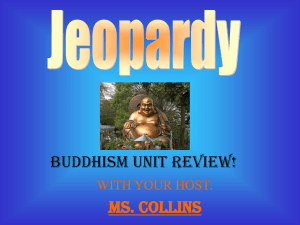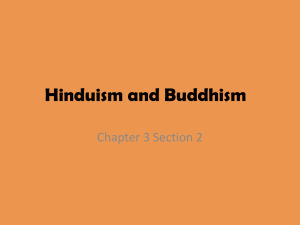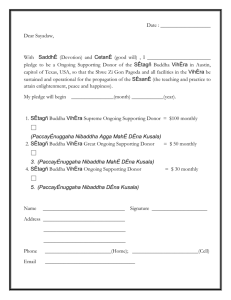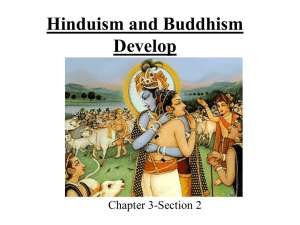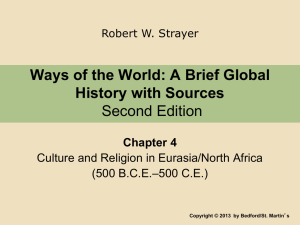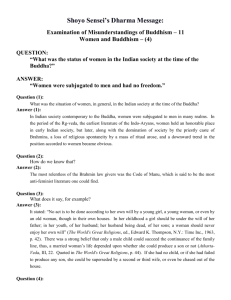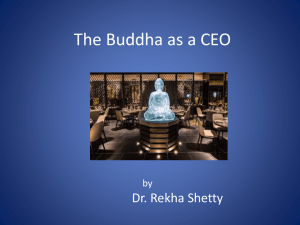“A unique being, an extraordinary man arises in this world for the
advertisement
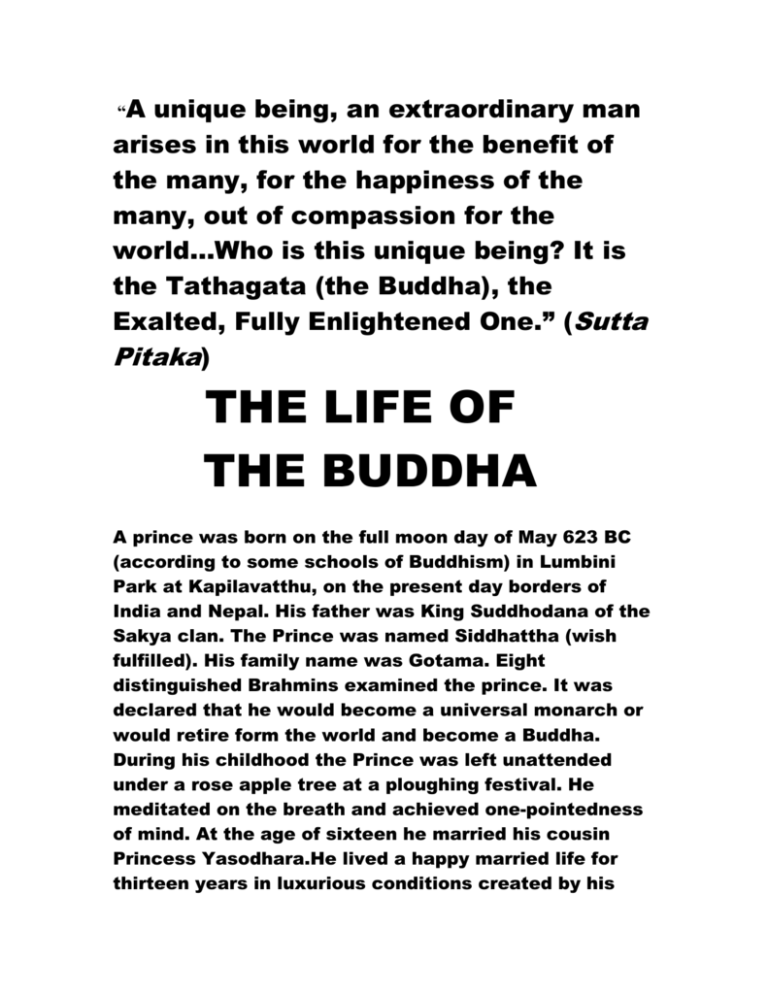
“A unique being, an extraordinary man arises in this world for the benefit of the many, for the happiness of the many, out of compassion for the world…Who is this unique being? It is the Tathagata (the Buddha), the Exalted, Fully Enlightened One.” (Sutta Pitaka) THE LIFE OF THE BUDDHA A prince was born on the full moon day of May 623 BC (according to some schools of Buddhism) in Lumbini Park at Kapilavatthu, on the present day borders of India and Nepal. His father was King Suddhodana of the Sakya clan. The Prince was named Siddhattha (wish fulfilled). His family name was Gotama. Eight distinguished Brahmins examined the prince. It was declared that he would become a universal monarch or would retire form the world and become a Buddha. During his childhood the Prince was left unattended under a rose apple tree at a ploughing festival. He meditated on the breath and achieved one-pointedness of mind. At the age of sixteen he married his cousin Princess Yasodhara.He lived a happy married life for thirteen years in luxurious conditions created by his father, to shelter him from the realities of life. While being driven in his carriage outside the palace he saw four signs which changed his view of the world: an old man, a sick person, a corpse and an ascetic. At the age of twenty-nine he decided to renounce the world to search for the Truth. Siddhattha left the palace and became a homeless ascetic. He studied under two teachers Alara Kalama and Uddaka Ramaputta, understood their teachings and left them to search for the Truth. Five ascetics joined him. For about six years he practiced extreme austerities. Remembering the one-pointedness of mind achieved under the rose apple tree and seeing the futility of excessive austerity he decided to renounce these extreme ascetic practices. His five companions deserted him fearing that he had returned to his life of luxury. th On the Full Moon day of May in his 35 year he sat under the Bodhi tree at Buddhagaya and attained Buddhahood (achieved enlightenment). Thereafter he is known as the Buddha (the Enlightened or the Awakened One). The Buddha referred to himself as the Tathagata (He who has thus gone). The Buddha walked to the Deer Park at Isipatana near Benares to join his five former companions. On the Full Moon day July 528 BC (according to some schools of Buddhism) the Buddha delivered his first discourse. The Buddha subsequently established a Sangha (order) of both Bhikkus (monks) and Bhikkhunis (nuns). The Buddha’s ministry lasted for forty five years. He died at the age of Eighty on the Full Moon day of May 543 BC (according to some schools of Buddhism) in the Sala Grove at Kusinara. This is known as the Parinibbana of the Buddha. The Buddha walked to the Deer Park at Isipatana near Benares to join his five former companions. On the Full Moon day July 528 BC (according to some schools of Buddhism) the Buddha delivered his first discourse. The Buddha subsequently established a Sangha (order) of both Bhikkus (monks) and Bhikkhunis (nuns). The Buddha’s ministry lasted for forty five years. He died at the age of Eighty on the Full Moon day of May 543 BC (according to some schools of Buddhism) in the Sala Grove at Kusinara. This is known as the Parinibbana of the Buddha.

